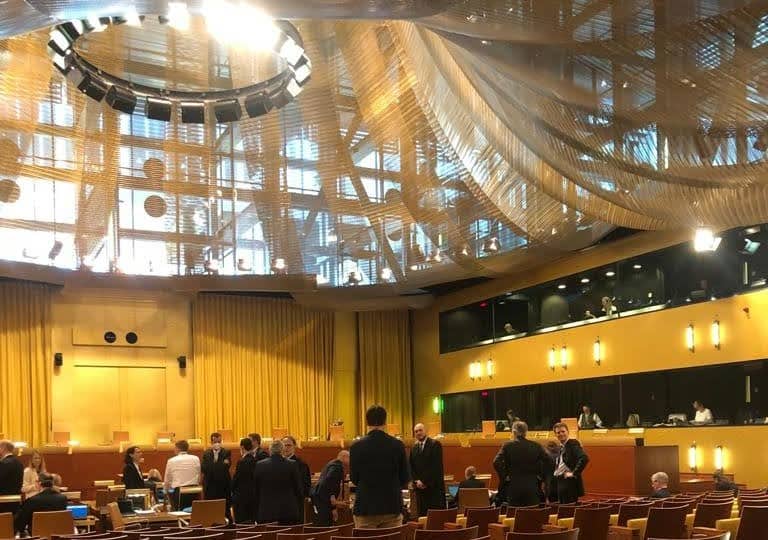The Digital Markets Act (DMA) came into force a few months ago. It will bring numerous new obligations for so-called gatekeepers. Today, I would like to present a new provision that will prohibit gatekeepers from engaging in most favoured nation practices. This is Art. 5 para. 3 DMA, here once in full text for better work:
“The gatekeeper shall not prevent business users from offering the same products or services to end users through third-party online intermediation services or through their own direct online sales channel at prices or conditions that are different from those offered through the online intermediation services of the gatekeeper.”
Art. 5 (3) DMA
Object of the prohibition rule
The prohibition links up with the practices of various platforms, which are often discussed under the terms “most favoured nation clause” or “best price clause”. By means of these, the platforms try to prevent their commercial customers from offering a better price or better conditions through other channels. Other channels in this context are mainly two: firstly, other platforms, i.e. competitors of the platform; secondly, the platform’s own sales, for example via the commercial customer’s own website. This is done by means of leverage, whereby the platform is in any case granted the best competitive conditions. Such leverage may be contained in the platform’s terms and conditions or may result from the platform’s practice.
The competition problems here are, on the one hand, the restriction of the freedom of commercial customers to shape and set prices and, on the other hand, the restriction of competition below the platforms. In antitrust practice, there have therefore already been some proceedings which can be summarised in Germany with a very restrictive and thus competition-friendly tendency.
This practice differs from the so-called self-preferential treatment that can occur with hybrid platforms. In this case, the platform is active both as an intermediary and on the horizontal market level with the commercial customers, which is not mandatory in the case of MFN. As an intermediary, it influences the competition among the commercial customers and favours itself, be it in price or, as is usually the case, in the presentation of the brokerage results to end customers.
In the case of most-favoured-nation treatment, on the other hand, the platform manages to limit the competition that lies outside its brokerage services and to redirect it towards itself. In doing so, it takes advantage of network effects so that, as a result of a very blatant development, all competition could run through its platform. This is sometimes described as so-called tipping, as the overturning of a market — in this case a market side of the platform. Recital 39 DMA also assumes that contestability by other platforms and thus the choice for end users will be limited. Commercial users should therefore be free to choose other online intermediation services or direct online distribution channels and to offer their products or services to end-users on differentiated terms. This should apply in particular to measures of equivalent effect, such as increased commission rates or the delisting of commercial users’ offers (cf. EC 39 p. 4 DMA).
Overview
Occasionally, the provision of Art. 5 para. 3 DMA is understood as a prohibition of MFN clauses. However, the wording of the provision goes beyond this. For according to it, the gatekeeper “may not prevent” the commercial users, which is expressly not limited to agreements. Typically, there will be a contract between the gatekeeper and its commercial customer for the use of the intermediary services, which would be covered by this. However, the platform could also enforce its MFN by other measures with “equivalent effect” (see EC 39 p. 4 DMA). This is made even clearer by a reference to Art. 8 (1), according to which the objectives of the regulation and the respective obligation are to be effectively achieved, which argues for a broad purpose-oriented interpretation.
The delisting or increased commission rates are first examples listed in the recital. In practice, the (threatened) impeded access of the end-user to the commercial customer is another. For example, in the context of its intermediation services, a platform could also carry out a price comparison outside its services and display to end-users only the buy button for companies that offer the best price in this price comparison. This is tantamount to delisting. In other words, the platform would sanction a company for not offering the best price through it. The commercial customers would then again be forced by this practice to offer the best price through the gatekeeper’s mediation service.
MFN treatment in the antitrust context
The comprehensive prohibition provision of Art. 5 para. 3 DMA is only directed at gatekeepers. Below this threshold, the general rules of antitrust law apply. In principle, therefore, Art. 101 (1) TFEU applies with its German counterpart § 1 GWB. In this regard, the German Federal Court of Justice (BGH) recently took a very strict view and saw a restriction of competition even in the case of narrow best-price clauses. An exception can only apply if the new Vertical Block Exemption Regulation (Vertikal-GVO) would apply to narrow MFN clauses, whereby the BGH had also seen considerable doubts about the existence of efficiency advantages here. However, wide MFN clauses are not exempt from the prohibition under Article 101 (1) TFEU due to Article 5 (1) (d) of the Verticals Block Exemption Regulation.
In addition, MFN practices can also be considered under the general other rules. If, for example, a platform has superior market power in a horizontal relationship vis-à-vis its competitors, it is subject to an independent obstruction control pursuant to Section 18 (3a) GWB. This prohibition forbids the prevention of the achievement of independent network effects by competitors. Such a case will not occur through every most-favoured-nation practice, since these alone do not necessarily impair network effects. In addition, there would have to be a risk that competition on the merits would be restricted to a not inconsiderable extent. Only when these other circumstances are added could competitors take action under the tipping paragraph.


















